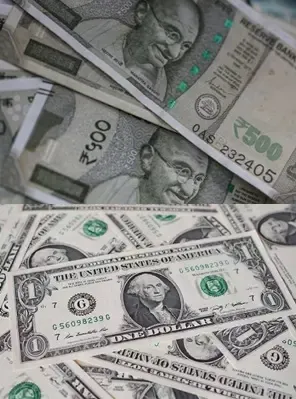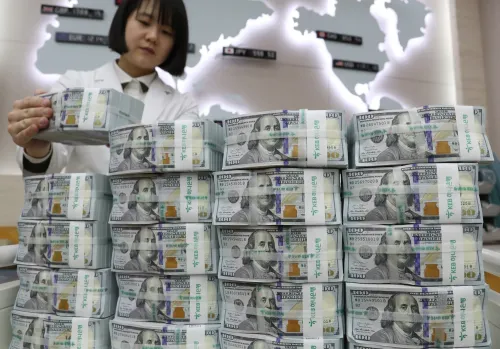Global Influences Behind Stock Market Drop, Not LTCG Tax: Economist

Synopsis
Key Takeaways
- Market decline attributed to global instability.
- LTCG tax to take effect in April 2026.
- Government maintains uniform tax rates across investor types.
- Global markets also experiencing downturns.
- Significant market growth prior to current correction.
New Delhi, March 5 (NationPress) The recent decline in the Indian stock market is attributed to global instability rather than the Long-Term Capital Gains (LTCG) tax, stated economist and BJP national spokesperson Sanju Verma on Wednesday.
In an interview with IANS, Verma addressed comments made by fund manager Samir Arora, who linked the market downturn to the LTCG tax.
"This assertion is incorrect. The fall of the Indian market is primarily caused by global factors," she argued, mentioning that the 12.5 percent LTCG tax will not come into effect until April 2026 and is applied uniformly.
Verma emphasized that the government has guaranteed a consistent LTCG tax rate for retail investors, institutional investors, and foreign investors.
The discussion surrounding the LTCG tax has intensified, with some market analysts attributing the current slump to elevated LTCG rates, urging the government to reassess the existing framework to mitigate its effects.
Verma observed that declines in stock markets are not exclusive to India, stating, "Markets in Shanghai, Hong Kong, Japan, and Singapore are also experiencing downturns."
Prior to this correction, the Indian stock market had enjoyed a significant rally, with the Nifty surpassing the 26,000 mark by September 2024, a considerable increase from 7,500 in March 2020. Similarly, the Sensex rose from 25,600 in March 2020 to 86,000 in September 2024.
Verma remarked, "The remarkable rise in markets over the past four and a half years - 249 percent for the Nifty and 235 percent for the Sensex - was exceptional, and such a correction was anticipated."
The overall market capitalization of all companies listed on the Bombay Stock Exchange (BSE) has fallen by Rs 95 lakh crore in recent months, which should be considered in context, she noted.
Verma added, "In 2013, the market capitalization of BSE-listed companies was Rs 93 lakh crore, which later surged to Rs 457 lakh crore."
She highlighted the rapid expansion of mutual funds over the last decade, noting that the Assets Under Management (AUM) of mutual funds in India increased from Rs 8 lakh crore in 2013 to Rs 69 lakh crore in November 2024.










